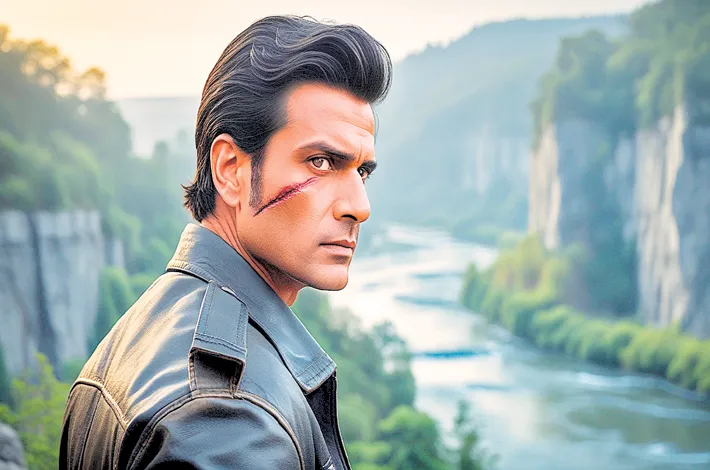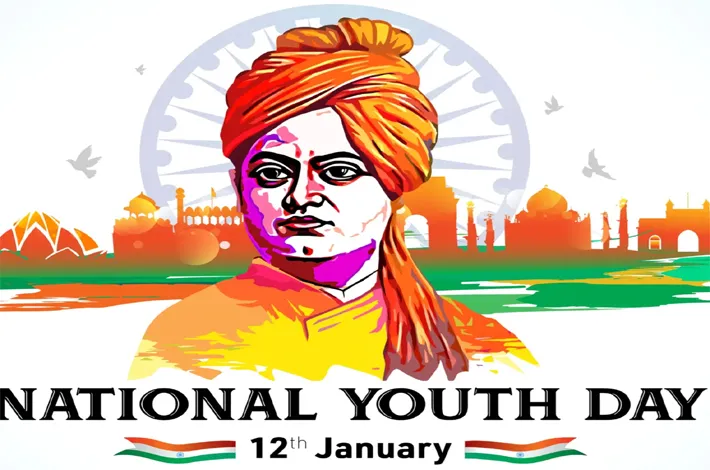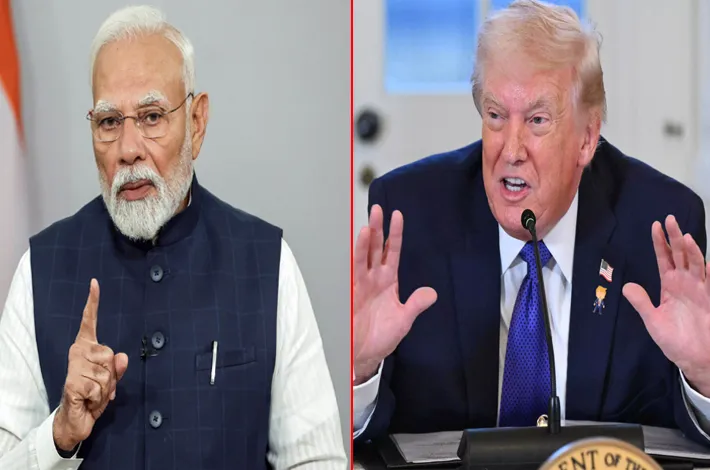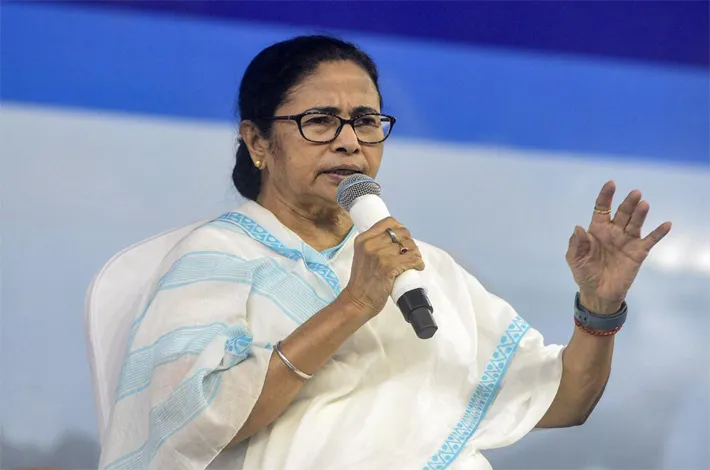The Ghost of Chambal
14-05-2025 12:00:00 AM

The Chambal River snaked through the jagged ravines like a serpent, its waters glinting under a merciless sun. The year was 2025, but the ravines of Madhya Pradesh and Uttar Pradesh remained a law unto themselves—untamed, unforgiving, and haunted by the ghosts of dacoits long gone. The air was thick with the scent of dust and gunpowder, and the locals whispered of a new shadow stalking the badlands.
Inspector Vikram Rathore, a wiry man with a scar running down his left cheek, stood at the edge of a cliff overlooking the river. His khaki uniform was stained with sweat, and his eyes, sharp as a hawk’s, scanned the labyrinth of gullies below. He’d been summoned to Morena, a border town teetering on the edge of chaos, after a gruesome discovery: three bodies, mutilated and left to rot in a shallow cave. The victims were local moneylenders, their throats slit with surgical precision. The word “Daaku” was carved into their chests.
“Dacoits don’t leave calling cards,” Vikram muttered to his deputy, Sub-Inspector Meena Kumari, a young officer with a fierce glint in her eyes. “This isn’t just a robbery gone wrong. It’s a message.”
Meena nodded, her hand resting on the holster at her hip. “The villagers are scared, sir. They think it’s the ghost of Phoolan Devi herself.”
Vikram snorted. “Ghosts don’t wield knives. But someone wants us to think they do.”
The Chambal ravines were no stranger to bloodshed. Decades ago, they were the playground of legendary bandits like Phoolan Devi and Malkhan Singh, who ruled with an iron fist and a Robin Hood mystique. But the dacoits of old were fading into legend, replaced by a new breed—smarter, deadlier, and hidden in plain sight. Vikram had spent years chasing shadows in these badlands, but this case felt different. It was personal.
The Trail of Blood
The investigation led Vikram and Meena to a ramshackle village called Bhind, where mud huts clung to the edge of the ravines like stubborn weeds. The villagers were tight-lipped, their eyes darting nervously toward the hills. Fear hung over the place like a fog. Vikram’s inquiries were met with silence, but a grizzled old man, his face weathered like the ravines themselves, finally spoke.
“They call him Kaal,” the old man whispered, spitting paan juice into the dust. “A shadow that moves at night. No one sees him, but everyone feels him. He takes what he wants—money, lives, fear. The moneylenders crossed him, and now they’re dead.”
“Kaal,” Vikram repeated, the name tasting like ash on his tongue. “Where do I find him?”
The old man laughed, a dry, rattling sound. “You don’t find Kaal. He finds you.”
That night, Vikram and Meena set up camp near the ravine’s edge, their jeep parked under a babul tree. The moon cast eerie shadows across the gullies, and the distant howl of a jackal sent a shiver down Meena’s spine. Vikram was restless, his mind churning. The moneylenders weren’t random targets. They were connected to a local politician, Raghav Pratap Singh, a man with a smile as oily as his hair and a reputation for dabbling in the black market. Was Kaal his enforcer? Or something else entirely?
At midnight, a twig snapped nearby. Vikram’s hand shot to his revolver. Meena froze, her flashlight cutting through the darkness. A figure emerged from the shadows—a boy, no older than sixteen, his clothes ragged and his eyes wide with terror.
“They’re coming,” the boy gasped. “Kaal’s men. They know you’re here.”
Before Vikram could respond, gunfire erupted. Bullets tore through the camp, shattering the jeep’s windshield. Vikram dove behind a boulder, dragging the boy with him. Meena returned fire, her shots precise but outnumbered. The attackers were ghosts, melting into the ravines as quickly as they’d appeared.
When the dust settled, the boy was gone. But he’d left something behind—a crude map scratched into the dirt, pointing to a place called Devil’s Hollow.
Devil’s Hollow
Devil’s Hollow was a maze of caves deep in the ravines, a place even the police avoided. The air grew colder as Vikram and Meena descended, their boots crunching on loose gravel. The map had led them here, but every instinct screamed trap. Still, Vikram pressed on. He’d lost too many battles to the ravines to turn back now.
Inside the largest cave, they found a shrine—a grotesque altar adorned with bones and bloodstained cloth. At its center was a photograph of a man Vikram recognized: Raghav Pratap Singh. But the photo was defaced, the politician’s eyes gouged out.
“He’s not the mastermind,” Meena said, her voice low. “He’s a target.”
Before Vikram could respond, a low chuckle echoed through the cave. A man stepped into the light—tall, lean, with a face like a blade. His eyes gleamed with a manic intensity, and a curved kukri hung at his belt. Kaal.
“You’re persistent, Inspector,” Kaal said, his voice smooth as silk. “But you’re chasing the wrong ghost.”
Vikram raised his revolver. “Who are you? Why the moneylenders?”
Kaal’s smile widened. “They were parasites, bleeding the poor dry. I’m just balancing the scales. As for who I am… let’s just say I’m a son of the ravines, born from their wrath.”
Meena edged closer, her gun trained on Kaal. “And Raghav? What’s he to you?”
Kaal’s expression darkened. “A traitor. He promised to protect us, to keep the ravines free. Instead, he sold us to the highest bidder—mining companies, smugglers, politicians. The ravines are dying, Inspector. I’m just giving them a voice.”
The pieces clicked in Vikram’s mind. Kaal wasn’t just a dacoit. He was a vigilante, a twisted avenger born from the ravines’ decay. But his methods were madness, and his body count was climbing.
“Drop the knife,” Vikram ordered. “This ends now.”
Kaal laughed, a sound that chilled the air. “It ends when I say it does.”
He lunged, his kukri flashing. Vikram fired, but Kaal was too fast, dodging into the shadows. The cave became a battlefield, Meena and Vikram fighting back-to-back as Kaal’s men swarmed from hidden tunnels. Bullets ricocheted off stone, and the air grew thick with smoke.
In the chaos, Vikram caught a glimpse of Kaal slipping toward a narrow exit. He gave chase, ignoring Meena’s shout to stay together. The tunnel twisted deeper into the earth, the walls closing in. At its end, Kaal stood waiting, his kukri dripping with blood.
“You can’t stop it,” Kaal said. “The ravines will have their revenge.”
Vikram tackled him, the two men crashing to the ground. The kukri skittered away, but Kaal fought like a cornered beast, his fists hammering Vikram’s ribs. Pain exploded in Vikram’s chest, but he held on, driven by a fury he couldn’t name. This wasn’t just about justice. It was about the scar on his cheek, the brother he’d lost to these same ravines years ago, the endless cycle of violence that refused to die.
With a final surge of strength, Vikram pinned Kaal, his revolver pressed to the man’s temple. “No more ghosts,” he growled.
Kaal’s eyes burned with defiance. “You’ll see, Inspector. The ravines never forget.”
A shot rang out, and Kaal went still.
Echoes of the Badlands
Dawn broke over the Chambal, painting the ravines in shades of gold and blood. Kaal’s body was recovered, but his men had vanished into the gullies, their loyalty to the ravines stronger than any leader. Raghav Pratap Singh was arrested, his empire of corruption crumbling under the weight of evidence found in Devil’s Hollow. The villagers of Bhind began to speak again, their fear giving way to cautious hope.
But Vikram knew the truth: the ravines would never be tamed. Kaal was gone, but his shadow lingered, a reminder that the badlands bred their own justice. As he stood by the river, Meena at his side, Vikram felt the weight of the scar on his cheek, a mark of battles won and lost.
“What now, sir?” Meena asked, her voice steady despite the bruises on her face.
Vikram looked out at the endless ravines, their secrets buried deep. “We keep fighting,” he said. “Because someone has to.”
And somewhere, in the heart of the badlands, the Chambal whispered back.








